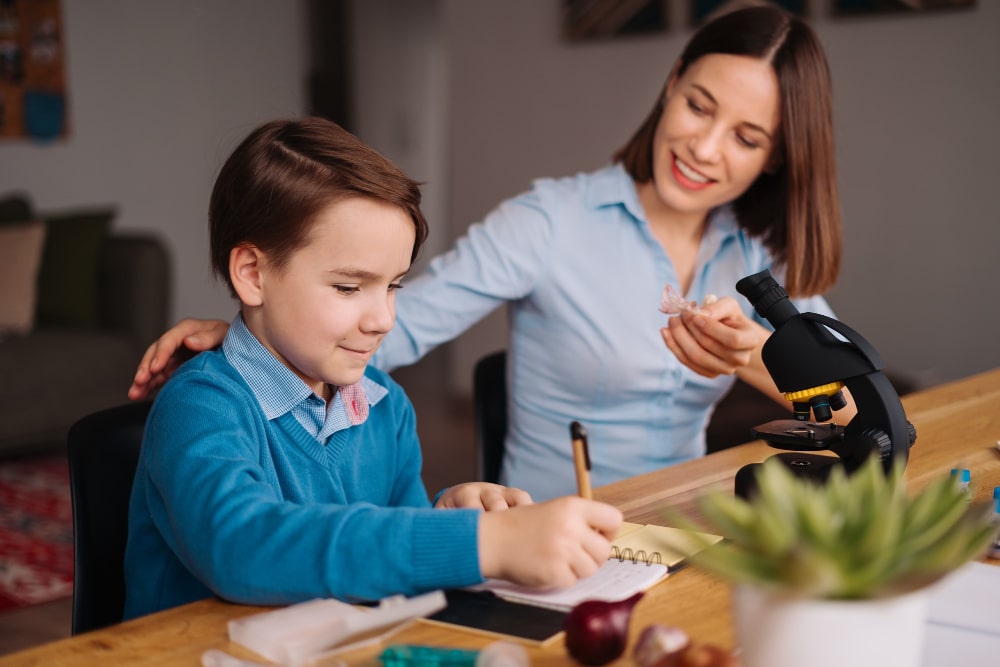
Do you want to ensure that your child is well-prepared for the challenges of life? Do you want them to become independent and confident individuals? As a parent, it is important to teach your child basic life skills that will serve as a strong foundation for their future.
But many parents often wonder, Where do I start? Today, we’ll learn about the essential life skills that every child should know and how to effectively teach them.
Must Read: How to Teach Responsibility to Kids: A Guide for Parents
Why are Basic Life Skills Important for Children?
Teaching your child basic life skills is crucial for their development and growth. These skills not only help them in their everyday lives but also prepare them for a successful future. Teaching your child basic life skills is essential for several important reasons:
- Independence: When children learn how to do things on their own, they become more independent individuals. This helps them develop confidence and a sense of self-reliance.
- Responsibility: By teaching children basic life skills, you are also instilling a sense of responsibility in them. They learn that they have to take care of themselves and their belongings.
- Practicality: Basic life skills are essential for practical daily tasks. From cooking simple meals to managing their finances, these skills will help children become more self-sufficient in the real world.
- Future success: Developing basic life skills can have a positive impact on children’s future success. These skills can increase their confidence, independence, and ability to handle challenges.
Practical Ways to Teach Children Basic Life Skills
Now that we know the importance of teaching children basic life skills, let’s take a look at some practical ways to do so.
Introduce Responsibilities Early
It’s never too early to start teaching children basic life skills. Even toddlers can learn simple tasks such as putting away their toys or helping to set the table. As they grow, more complex skills can be introduced. Starting early also allows children to develop these skills as habits, making them more likely to continue using them throughout their lives.
Make it fun
Children learn best through play, so make teaching life skills a fun and engaging activity. Incorporate basic life skills into playtime or turn them into a game. This not only makes the learning process more enjoyable for children, but it also helps them to retain the skills better.
For example, you can turn household chores into a game by setting a timer and seeing who can finish their task first. This not only teaches children how to do chores, but also introduces the concept of time management. You can also use pretend play to teach life skills.
Lead by example
This is the best approach to teach life skills to children. Children often imitate the behavior of their parents, so it’s important for parents to model good life skills in their daily lives. This includes being responsible, showing empathy and respect towards others, and managing emotions effectively. Children are more likely to adopt these skills if they see their parents practicing them.
Additionally, parents can also involve their children in tasks that require life skills. For example, involving children in meal planning and preparation not only teaches them how to cook but also instills responsibility and teamwork.
Provide Opportunities for Decision-Making
Making decisions is an important life skill that children need to learn. Parents can provide opportunities for their children to make decisions and take responsibility for the consequences. This could be as simple as letting them choose what they want to wear or what activity they want to do on the weekend.
I remember when my parents allowed me to choose the vegetables and fruits for our weekly grocery shopping. It may seem like a small decision, but it gave me a sense of responsibility and ownership over the choices I made. Now, as a parent myself, I try to give my children similar opportunities to make decisions and learn from the consequences.
Developing Effective Communication
Effective communication is an important life skill that parents should teach their children. It involves expressing thoughts and emotions clearly, listening actively, and understanding the perspectives of others. Good communication skills can help children build strong relationships, succeed in school and work, and handle conflicts effectively. So, how can parents help their children develop effective communication skills?
- Encourage open and honest communication
- Model good communication
- Teach active listening
- Practice empathy and understanding
- Use positive reinforcement
These are just a few ways that parents can support their children in developing strong communication skills. So don’t be afraid to start incorporating these strategies into your daily interactions with your child.
With patience and consistency, you can help your child become a confident and effective communicator.
Final Words
As you can see, there are many fundamental life skills that children need to learn to thrive in their personal and professional lives. As parents, it is our responsibility not only to teach these skills but also to lead by example and create a supportive environment for our children to practice and develop them.
Teaching essential life skills is a continuous journey that demands patience, empathy, and consistency. It may take time for children to master each skill, and they will likely make mistakes along the way. However, it is essential to remember that every step towards learning a life skill is valuable and should be celebrated.
You may also need: Easy Discipline Strategies for Children: A Parent’s Guide
Frequently Asked Questions
What are the best ways to teach my child time management skills?
Teaching time management skills to children can be challenging, but it is crucial for their success in the future. One way to start is by creating a daily routine together and sticking to it. This will teach your child the value of effective time management and its importance in their daily life.
What are some effective ways to boost my child’s self-confidence?
Provide consistent support and celebrate their achievements, big or small. Encourage them to try new things and never compare them to others. Help them see that mistakes are essential steps on the path to learning and growth.
How do I encourage consistency in practicing life skills?
Set a routine and involve your child in daily tasks. Provide reminders and gently guide them when needed. Over time, consistent practice will turn these skills into habits. Be patient and acknowledge their efforts, as any progress made is worth celebrating. Additionally, lead by example and show consistency in your own actions and behaviors.
What should I do if my child is reluctant to learn?
Stay patient and try to identify what’s causing their reluctance. Break tasks into smaller steps, offer guidance, and praise their progress to build confidence.
